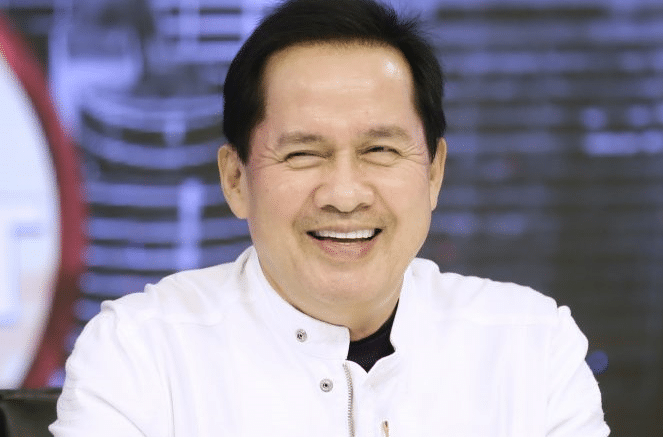Quiboloy's 'party problem' will not doom his Senate bid, says Comelec
At A Glance
- The Commission on Elections (Comelec) explained on Wednesday, Oct. 9, that the ongoing issue concerning the legitimacy of embattled church leader Apollo Quiboloy's political party will not be a basis for the cancellation of his senatorial bid.
 Apollo Quiboloy (Facebook)
Apollo Quiboloy (Facebook)
The Commission on Elections (Comelec) explained on Wednesday, Oct. 9, that the ongoing issue concerning the legitimacy of embattled church leader Apollo Quiboloy’s political party will not be a basis for the cancellation of his senatorial bid.
While he said it was “premature” at this point, Comelec Chairman George Erwin Garcia noted that concerns related to Quiboloy’s certificate of nomination and acceptance (CONA) were not included in the grounds for disqualification under the Omnibus Election Code and the Local Government Code.
Garcia was referring to Section 12 of the Omnibus Election Code, which stated that a candidate will be disqualified if they are declared “insane or incompetent”; convicted of subversion, insurrection, or rebellion; sentenced to a penalty of more than 18 months of prison; or any crime involving moral turpitude.
He mentioned Section 68 of the same law, which stated that candidates may face disqualification if found guilty of bribing Comelec officials, committed acts of terrorism to enhance his candidacy, and spent more than the allowed election campaign amount, among others.
The Comelec chief also referenced Section 39 of the Local Government Code, which stated that provisions for disqualification include those with dual citizenship, permanent residents in foreign countries, convicted for violating the oath of allegiance, as well as being a fugitive from justice.
Quiboloy, currently detained over child abuse and human trafficking charges, filed his certificate of candidacy (COC) senator on Tuesday—the last day of filing—as a candidate of the Workers and Peasants Party (WPP).
The Kingdom of Jesus Christ (KOJC) church founder’s lawyer, Mark Tolentino submitted the COC, before the Comelec.
However, in an X post, WPP President Sonny Matula said he was “not aware” of who signed Quiboloy’s CONA—a document that declares a candidate’s nomination by a political party.
“Only three individuals are authorized to sign on behalf of WPP: the Chair, the President, and the Senior Vice President. As President, I can confirm that I did not sign any CONA for Quiboloy,” said Matula.
He said the party’s chairperson, Ariel Arias, and senior vice president, Ocsar Morado, have “no knowledge of signing a CONA” for Quiboloy.
Comelec later found out that the WPP has two factions, based on the two sets of authorized signatories it received from the party.
According to Garcia, there is an “Arias wing” and “Tolentino wing” in the WPP.
It was Tolentino, Quiboloy’s lawyer, who signed the CONA on behalf of the WPP.
The Comelec chairman said this “internal dispute” will be up to the poll body to resolve in order to determine who has legitimate claim to the party.
If the Comelec decides to favor the “Arias wing”, then Quiboloy would run in next year’s elections as an independent candidate.
This scenario if is applicable in reverse to senatorial bet Matula should the “Arias wing” be found illegitimate.